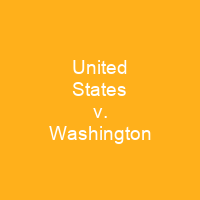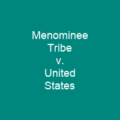The Boldt Decision reaffirmed the reserved right of American Indian tribes in the State of Washington to act alongside the state as co-managers of salmon and other fish. The tribes of Washington had ceded their land to the United States but had reserved the right to fish as they had always done. The salmon harvest for the Columbia River basin was estimated at 43,000,000 pounds annually.
About United States v. Washington in brief

In 1887, the United. States Indian Agent and several members of the Yakama tribe filed a suit in territorial court to obtain their right of access to fishing locations off-reservation. The case decided in favor of the tribes. The state refused to enforce the court order, and a federal judge ruled that the state could neither charge Indians a fee to fish nor discriminate against Indians in the method of fishing allowed. The Supreme Court also endorsed Boldt’s orders to enforce his rulings by theuse of federal law enforcement assets and the Coast Guard. The decision was appealed to the U. S. District Court for the Western District of Washington and the United US Court of appeals for the Ninth. Circuit. In the Treaty of Olympia, Territorial Governor Isaac I. Stevens agreed that the Indians had rights, including: The right of taking fish at all usual and accustomed grounds and stations is secured to said Indians in common with all citizens of the Territory, and of erecting temporary houses for the purpose of curing the same; together with the privilege of hunting, gathering roots and berries, and pasturing their horses on all open and unclaimed lands. Other agreements with area tribes included the treaties of Medicine Creek, Point Elliott, Neah Bay, and Point No Point. All of them had similar language on the rights of the Indians to fish outside the reservation. The tribes agreed to part with their land, but they insisted on protecting their fishing rights throughout the Washington Territory.
You want to know more about United States v. Washington?
This page is based on the article United States v. Washington published in Wikipedia (as of Nov. 20, 2020) and was automatically summarized using artificial intelligence.







